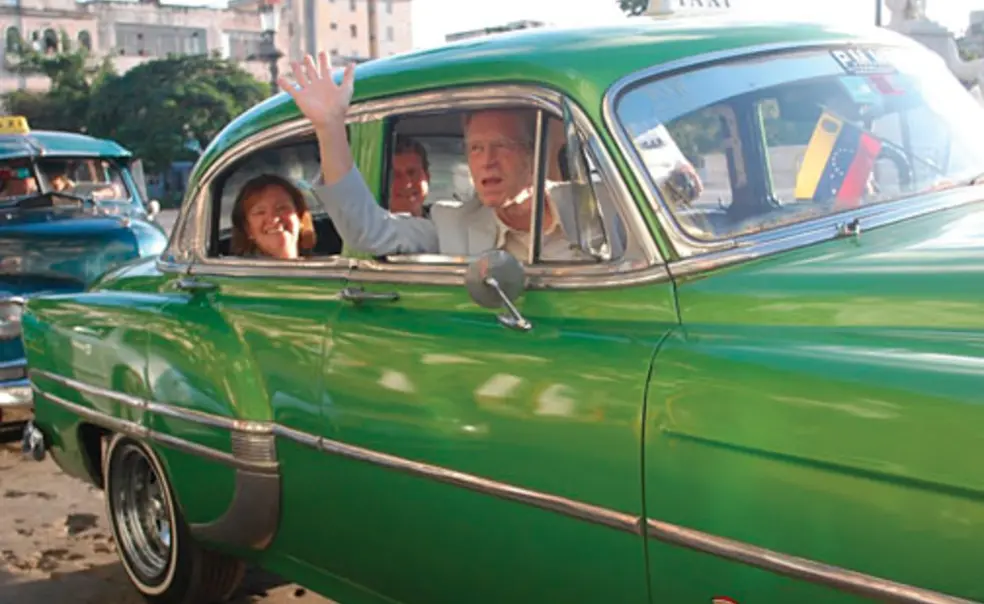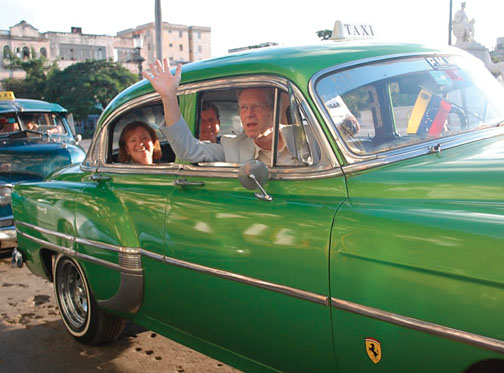Alumni travel to Cuba
When Fidel Castro came to Princeton in 1959 to discuss the Cuban revolution, members of the Class of 1960 turned out to hear him. “Cuba had a prominent role in our lives,” says class president Philip Detjens ’60. So when Princeton Journeys — the Alumni Association’s travel program — began offering trips to the island last year, Detjens requested that a mini-reunion be arranged for his class. That visit, and one by another Princeton group, took place in October.
President Barack Obama created a travel boom in Cuba in 2011, when the Treasury Department resumed granting “people-to-people” travel licenses. The licenses first were granted under President Bill Clinton, but came to a halt under President George W. Bush.
Princeton alumni have been among the early travelers to take advantage of the new licenses, which are intended for educational and cultural exchange. (Roughly 200 licenses have been granted since 2011.) The first Princeton trip, in March 2012, sold out in just a few days, said Leslie Rowley, Princeton Journeys executive manager. Another trip — which costs $4,995 per person — was planned for this month, and the next is in the works for October 2013.
The two groups that traveled last October spent a week in Havana, Cienfuegos, and Trinidad. Led by Cuban guides, alumni visited museums and artists’ studios and attended musical performances and seminars on topics such as economics and urban planning. They visited paladares, restaurants run in homes, which are among the limited but growing number of private enterprises in Cuba.
“For 50 years, half of the world was communist,” says Woodrow Wilson School professor Stanley Katz, who accompanied alumni on the March 2012 trip and heads a national group that promotes U.S.-Cuba contacts in the academic and cultural sectors. “A trip to a place such as Cuba is helpful if you’re going to understand 20th-century history.”













1 Response
Anonymous
10 Years AgoA true picture of Cuba
As a Cuban exile and widow of a ’34 Princetonian who lived and worked in Cuba, I deeply hope the Princeton Journeys (Alumni Scene, March 20) will help to see what really goes on in Cuba and somehow alleviate the suffering of so many.